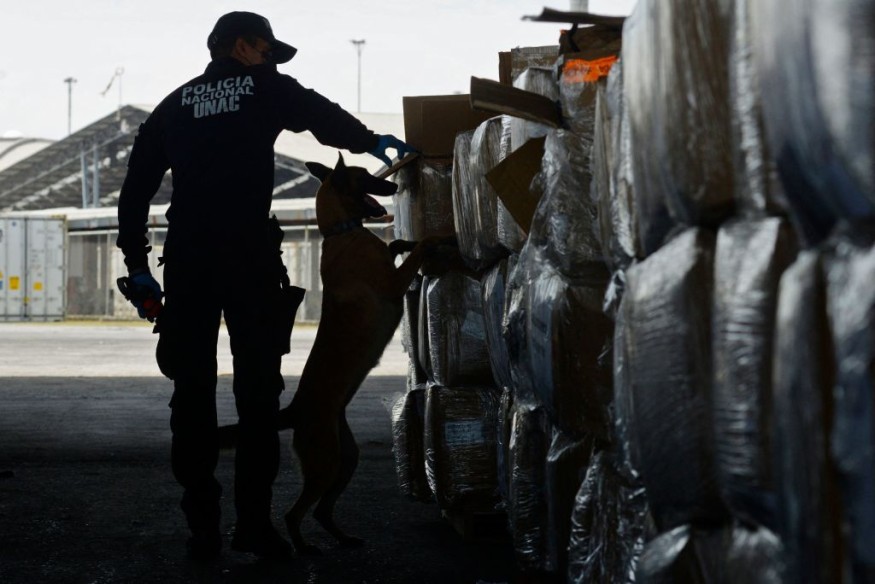Ecuador Seizes $330 Million Worth of Cocaine in Banana Shipment Bound for Belgium

Authorities in Ecuador have found packages of cocaine in a shipment of bananas bound for Belgium.
Police commander Fausto Salinas said the cocaine shipment intercepted at the port of Guayaquil weighed almost 8.8 tons. He also estimated the drugs to be worth $330 million if they reached the European country.
According to BBC, Ecuador often serves as one of the main transit countries for illegal drugs produced in neighboring Peru and Colombia.
The seizure was reportedly announced as the largest bust so far this year. However, this still pales compared to the amount of cocaine seized in the port of Guayaquil last year, when over 200 tons of the illicit drug were confiscated.
Ecuador and Belgium Reach Agreement to Fight Organized Crime After Mega Cocaine Bust
Ecuador and Belgium signed an agreement Monday to increase bilateral cooperation in their fight against international organized crime.
According to Reuters, the interior ministers of both countries signed the deal in Quito, Ecuador, a day after the "mega cocaine bust" in the port of Guayaquil.
The country's conservative president, Guillermo Lasso, has already been pushing for his country to ramp up efforts to fight gangs and organized crime syndicates that use the country as a transit point for shipping cocaine.
These drugs are often bound not just to Europe but also to the United States. Ecuador's Interior Minister Juan Zapata told reporters that the size of the seizure last weekend makes it "necessary for Ecuador to further strengthen cooperation with the Belgian government."
The cooperative effort between the two countries would include sharing of information, methodology, procedures, and experiences, as well as technology to combat organized crime.
Belgium's Interior Minister Annelies Verlinden and European Commissioner for Home Affairs Ylva Johansson arrived in the country for the agreement.
The European Union has noted the dangers of these drug shipments from Ecuador. The director of the European Monitoring Centre for Drugs and Drug Addiction, Alexis Gosdeel, said that the "growing flow of cocaine now threatens the entire European Union."
Zapata admitted that Ecuador needed to have new transversal responses against organized crime. So far, the country has seized around 39 tons of illegal drugs, particularly cocaine, this year, according to the country's police data.
Ecuador Is Turning Seized Cocaine Into Concrete
With the country seizing tons of illegal narcotics bound for Europe and the United States, Ecuador seems to have found a novel way to get rid of these drugs.
According to Reuters, the South American country now uses cocaine as a construction material. While Ecuador still incinerates some of the cocaine, Edmundo Mera, undersecretary for Drug Control at Ecuador's Interior Ministry, noted that the excess cocaine is being used as construction materials.
The United Nations have backed this as it uses the encapsulation method with support from the United Nations Office on Drugs and Crime (UNODC).
The Ecuadorian government pulverizes the confiscated blocks of cocaine in industrial machines with other refuse at a waste disposal plant and then mixes them with cement, sand, and water to create concrete platforms.
The mixture sets fast, so there is no danger of cocaine seeping through, mixing, and contaminating the ground below. The layers of concrete will be used to fill a 15-meter-deep hole and will later be part of a warehouse floor in the plant. However, Ecuadorian authorities keep the plant's name a secret for security reasons.
This article is owned by Latin Post.
Written by: Rick Martin
WATCH: Ecuador Becomes s
Sanctuary for Multibillion-Dollar Drug Trade - From Al Jazeera English
Subscribe to Latin Post!
Sign up for our free newsletter for the Latest coverage!
© 2025 Latin Post. All rights reserved. Do not reproduce without permission.















